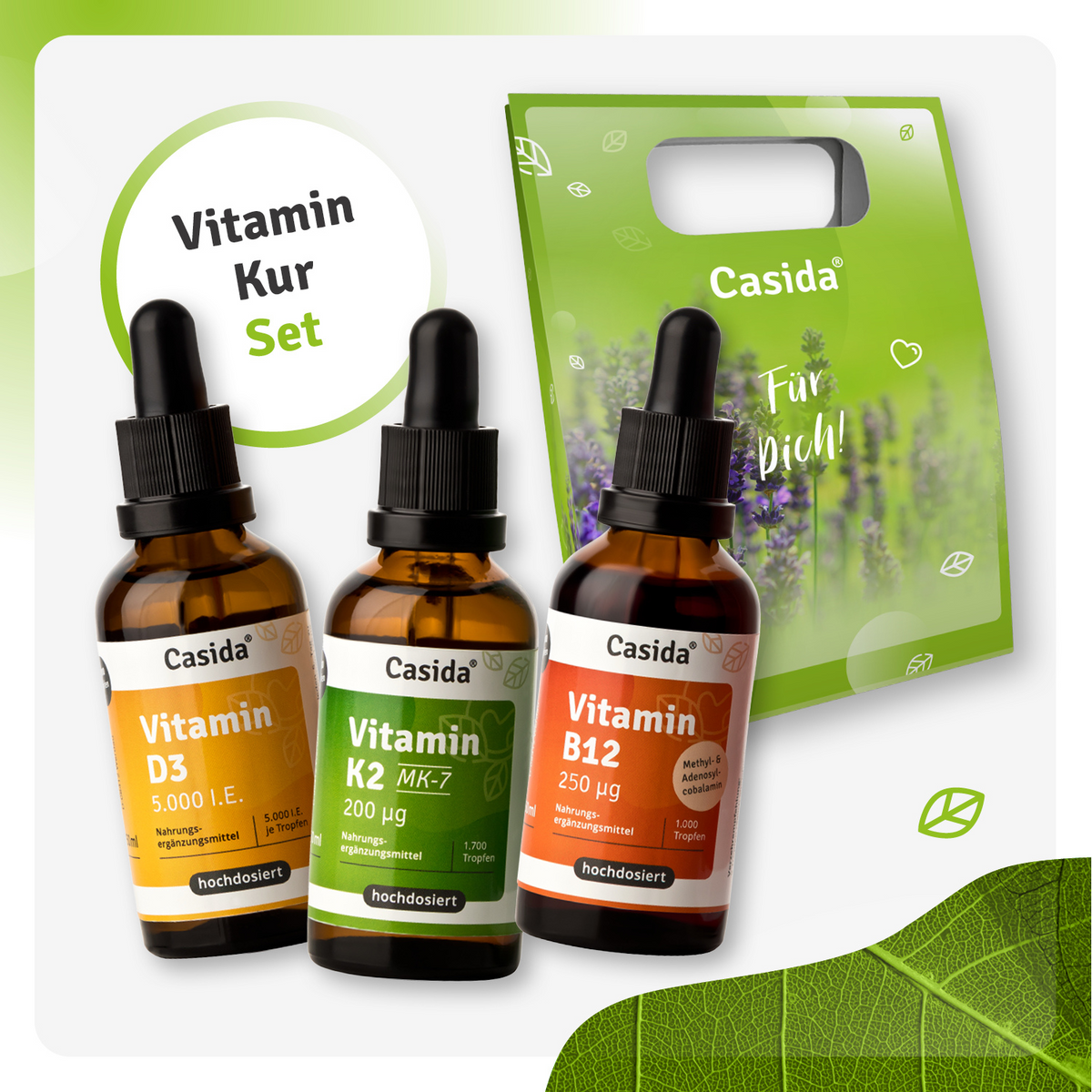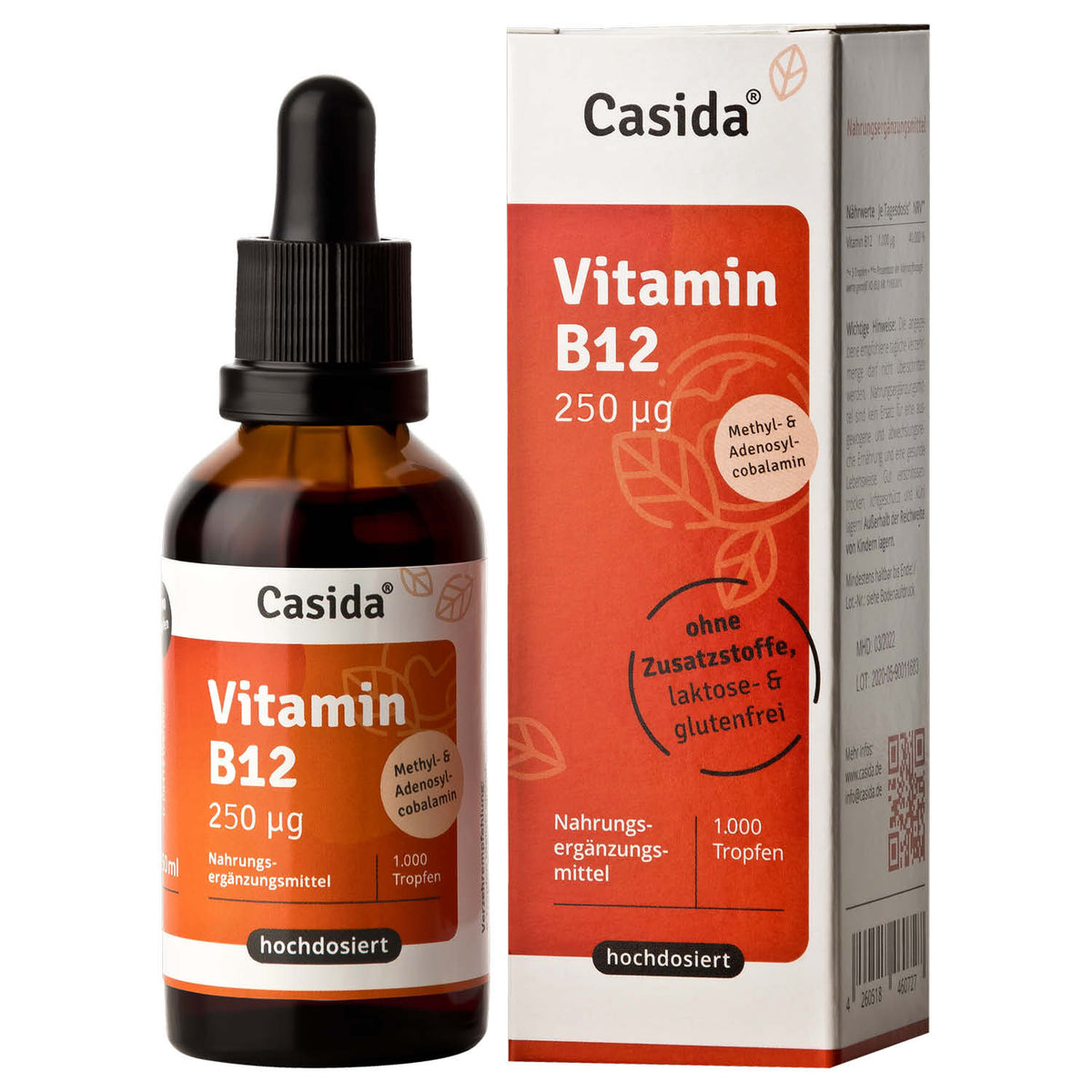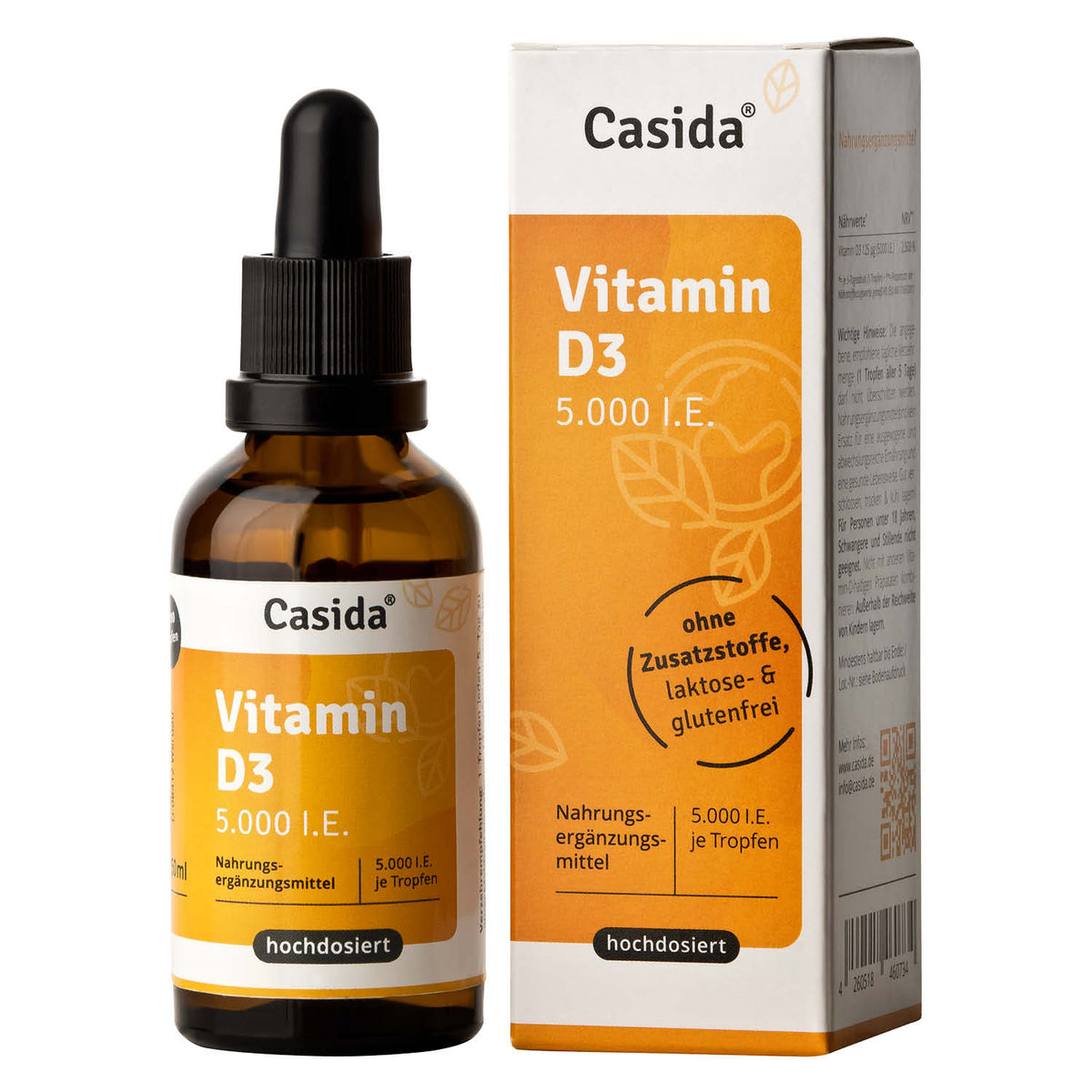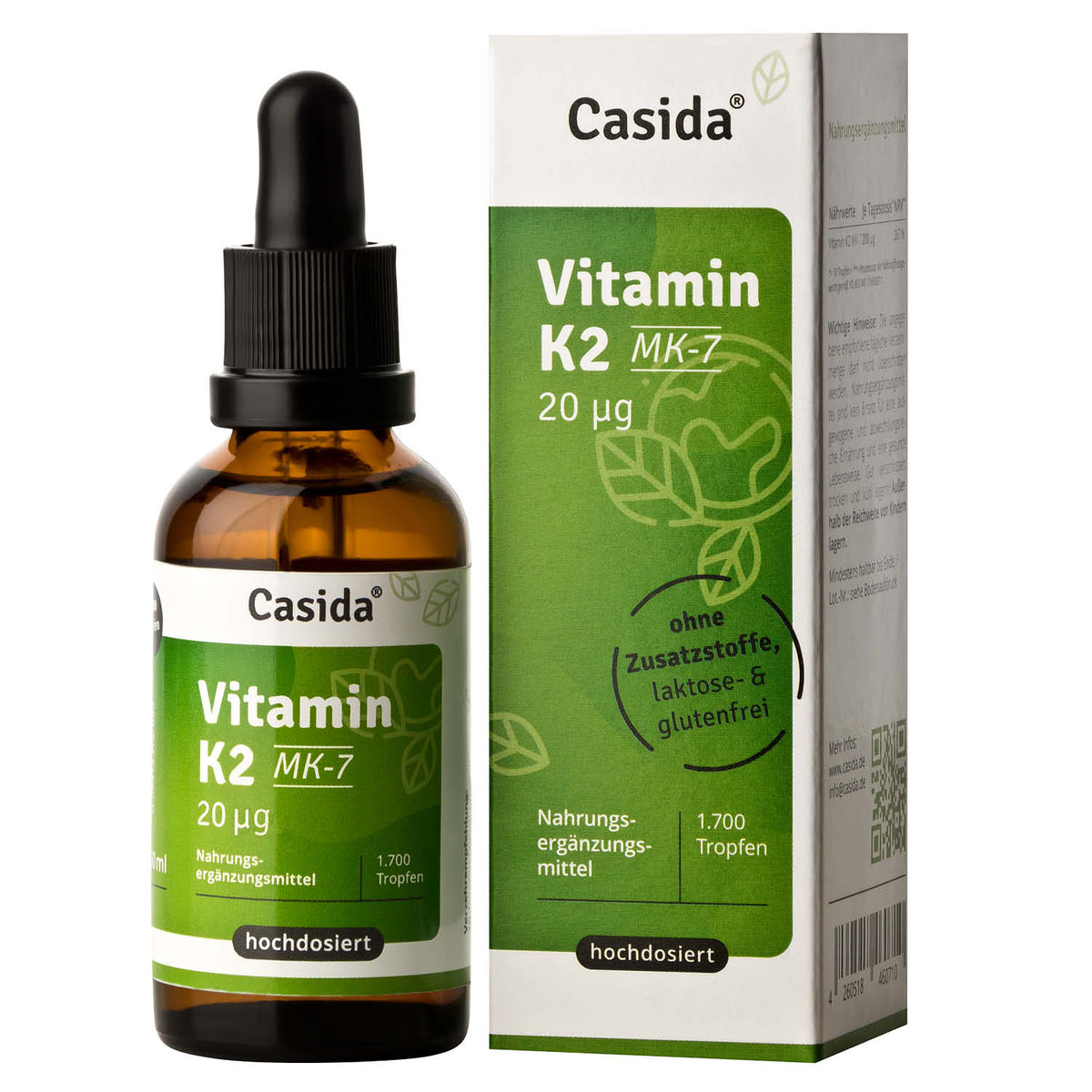Vitamin B12 deficiency is not uncommon in Germany. One in ten Germans is said to suffer from this deficiency, while one in four people over the age of 65 is affected. B12 deficiency can cause numerous complaints such as tiredness, weakness, but also nerve disorders or anaemia. It is therefore important to be aware of the various causes and symptoms. Only in this way can the symptoms of at-risk groups, which primarily include older people, vegetarians, pregnant women and patients with kidney or intestinal diseases, be remedied in good time. Below you can read more about vitamin B12 deficiency, the causes and symptoms. In addition, important topics - from remedying the symptoms, to the appropriate diet, to the use of dietary supplements - are covered.
Table of contents
What is vitamin B12 important for?
Vitamin B12 is also known as cobalamin or coenzyme B12 and is one of the vital vitamins required by every single cell in the body. Vitamin B12 fulfills numerous functions in the human body, such as blood formation, energy metabolism, synthesis of DNA, synthesis of hormones and neurotransmitters, lipid metabolism, protection of the nerves in the CNS and brain, detoxification, breakdown of homocysteine and cell division. If vitamin B12 is not sufficiently absorbed by the body, serious damage can occur. However, vitamin B12 deficiency is not noticed immediately, as the body can even use its reserves for years. Vitamin B12 is required for all processes in the body and must therefore be stored regularly and in sufficient quantities.
Which foods can be used to prevent vitamin B12 deficiency?
To avoid a vitamin B12 deficiency, the body must be able to store the vitamin. Even though the body stores vitamin B12 as the only water-soluble vitamin in the body, regular consumption of foods containing vitamin B12 is necessary. However, the daily intake depends on age. The German Nutrition Society (DGE) recommends 4 micrograms of vitamin B12 per day for adolescents aged 15 and over and adults*. During pregnancy and breastfeeding, 4.5 micrograms or 5.5 micrograms of vitamin B12 per day should be taken.
Vitamin B12 deficiency in vegans and vegetarians
Sauerkraut and beer are among the foods of plant origin that may contain traces of vitamin B12 after bacterial fermentation. Fluctuating amounts can also be found in seaweed such as nori and shiitake mushrooms. These foods for vegans are the only natural sources of vitamin B12. However, it is questionable whether the body can even utilize vitamin B12 in these foods of plant origin.
Causes of vitamin B12 deficiency
A deficiency is usually easy to treat. However, it is important to take a close look at the causes beforehand in order to be able to remedy the symptoms. Possible causes could be
- Insufficient intake through food
- Increased requirement under certain conditions
- stress
- illnesses
- Alcoholism
- Hereditary causes
- Medication
Symptoms of vitamin B12 deficiency
Symptoms of a deficiency do not appear immediately, but only after the reserves of vitamin B12 stored in the body have been exhausted. These reserves ensure that a temporary inadequate intake of vitamin B12 is not immediately followed by symptoms. These reserves can often supply the body with vitamin B12 for years, so that there are no warning signals for a long time. The variety of vitamin B12 deficiency symptoms can be attributed to the many functions of vitamin B12.
How can I remedy vitamin B12 deficiency symptoms?
Once a deficiency has been detected, the cause must first be determined. The therapy varies depending on the cause. The therapy also depends on the severity of the deficiency. For mild B12 deficiency, appropriate doses of tablets are sufficient, while severe B12 deficiency is usually remedied with injections.








